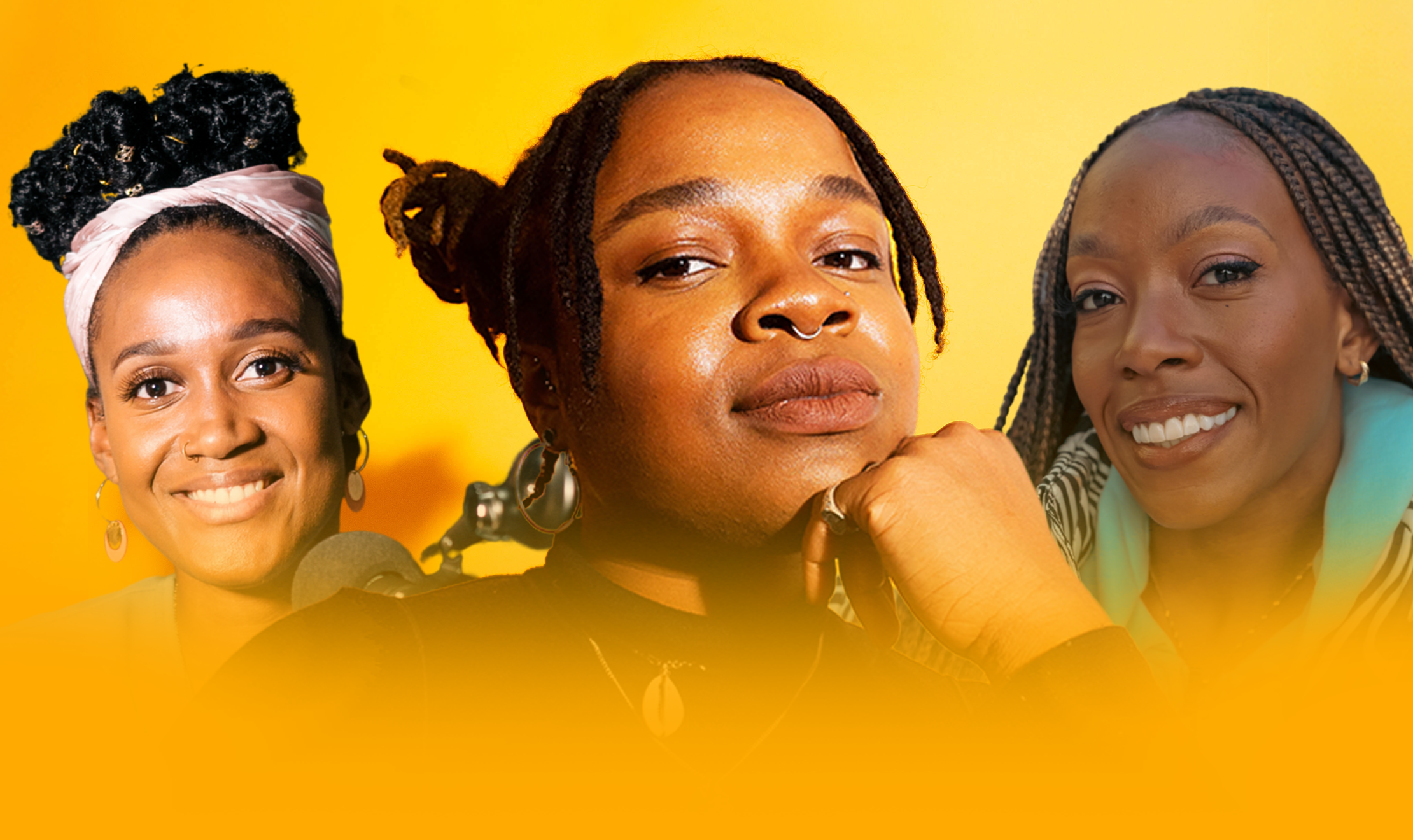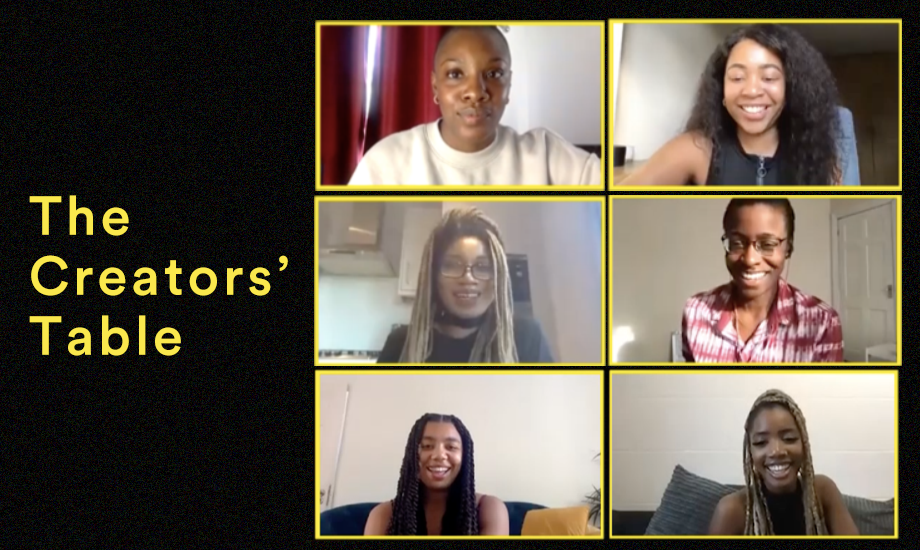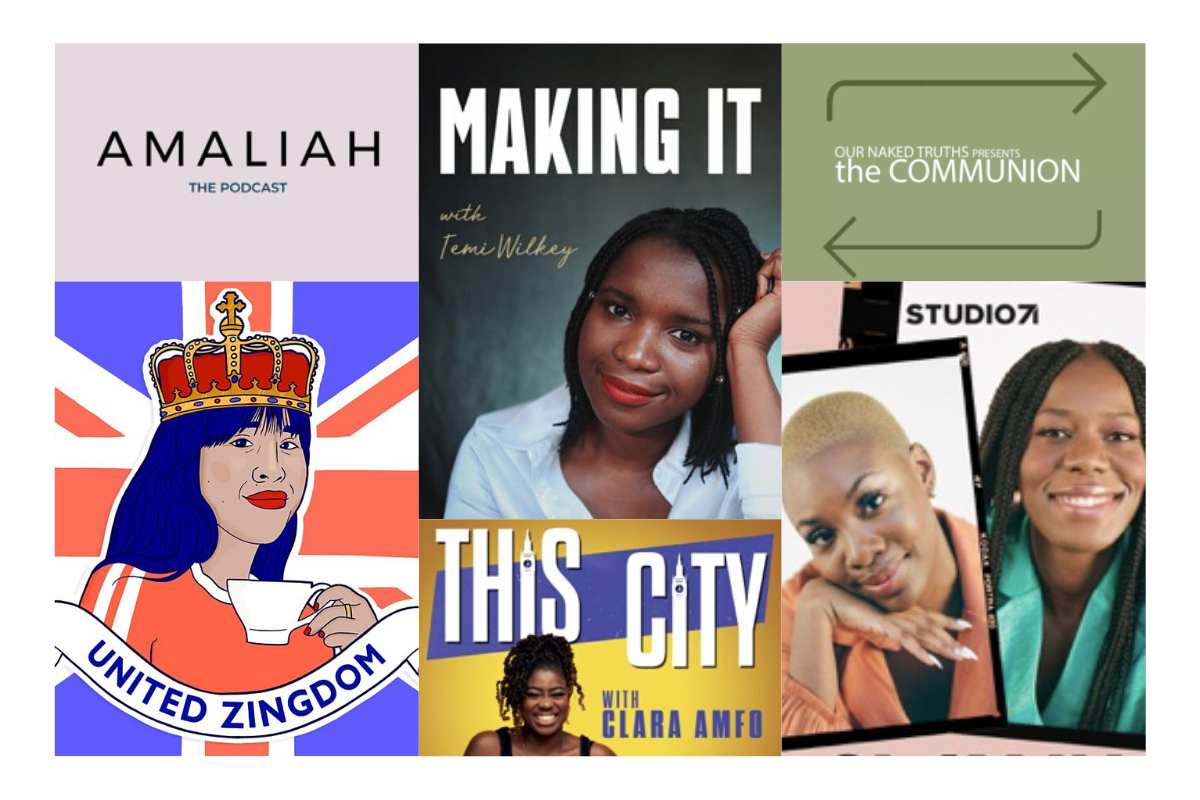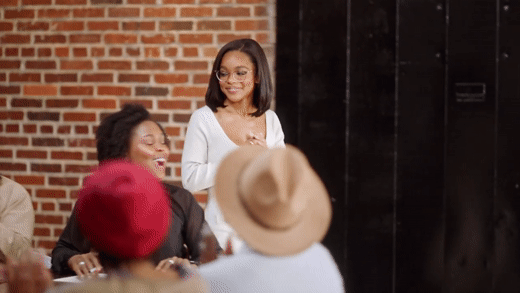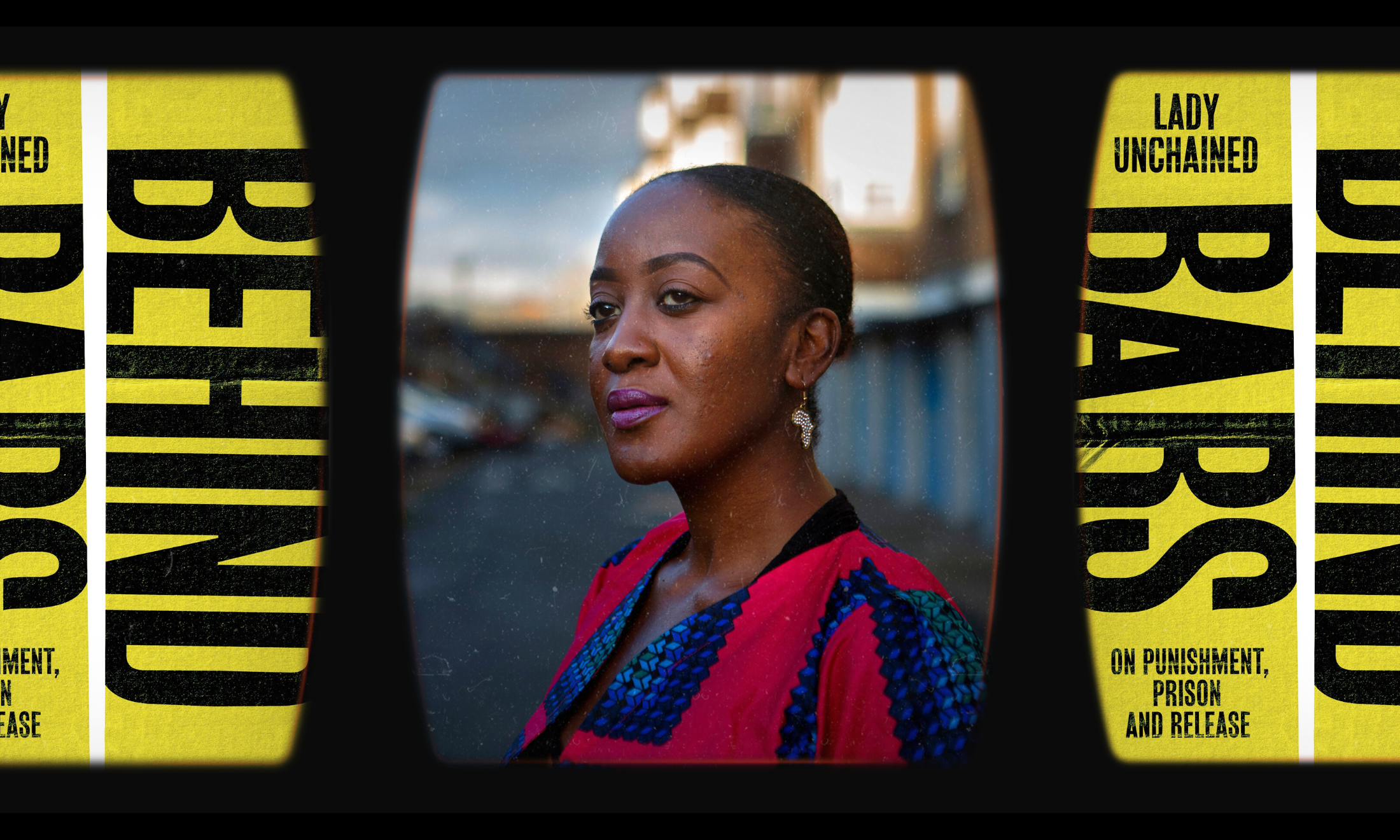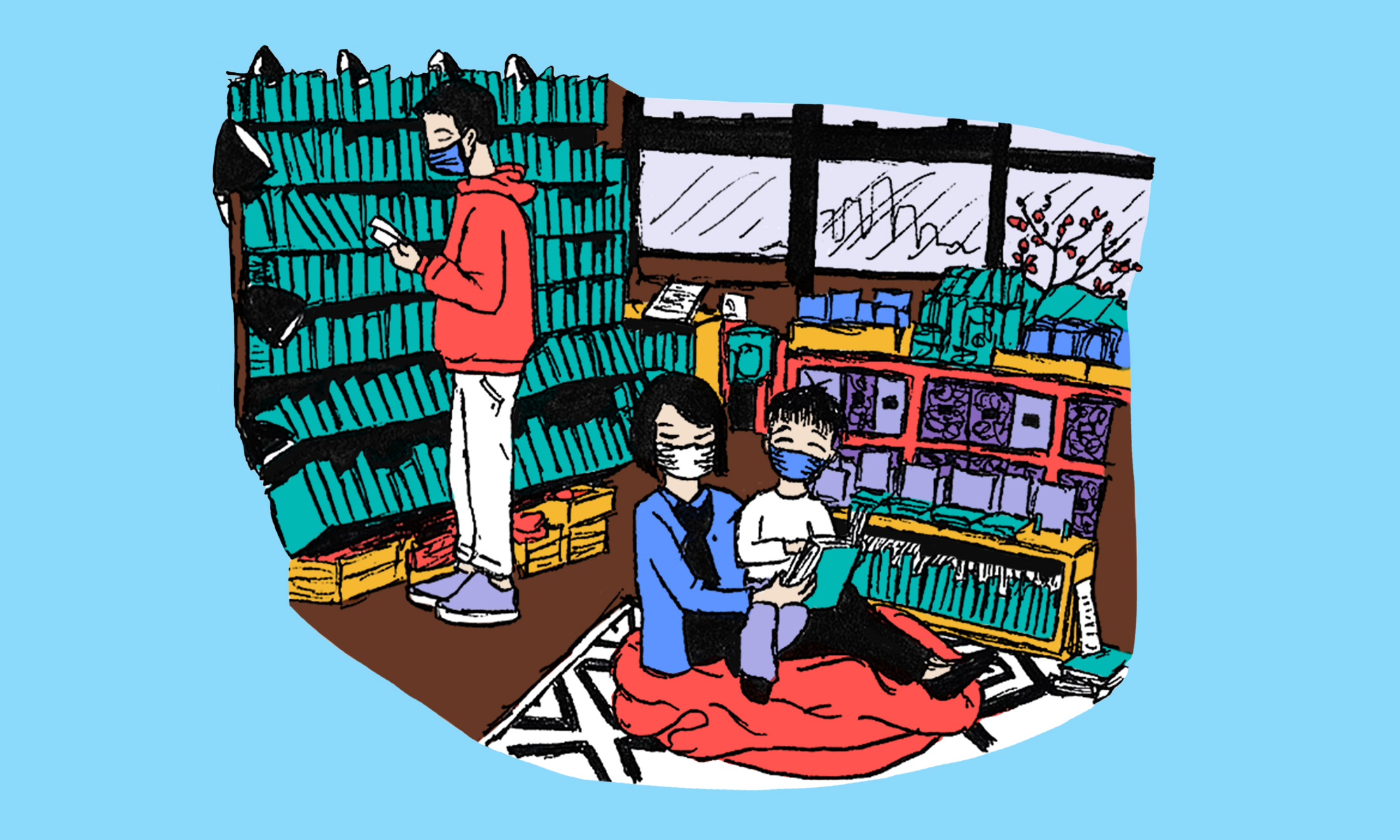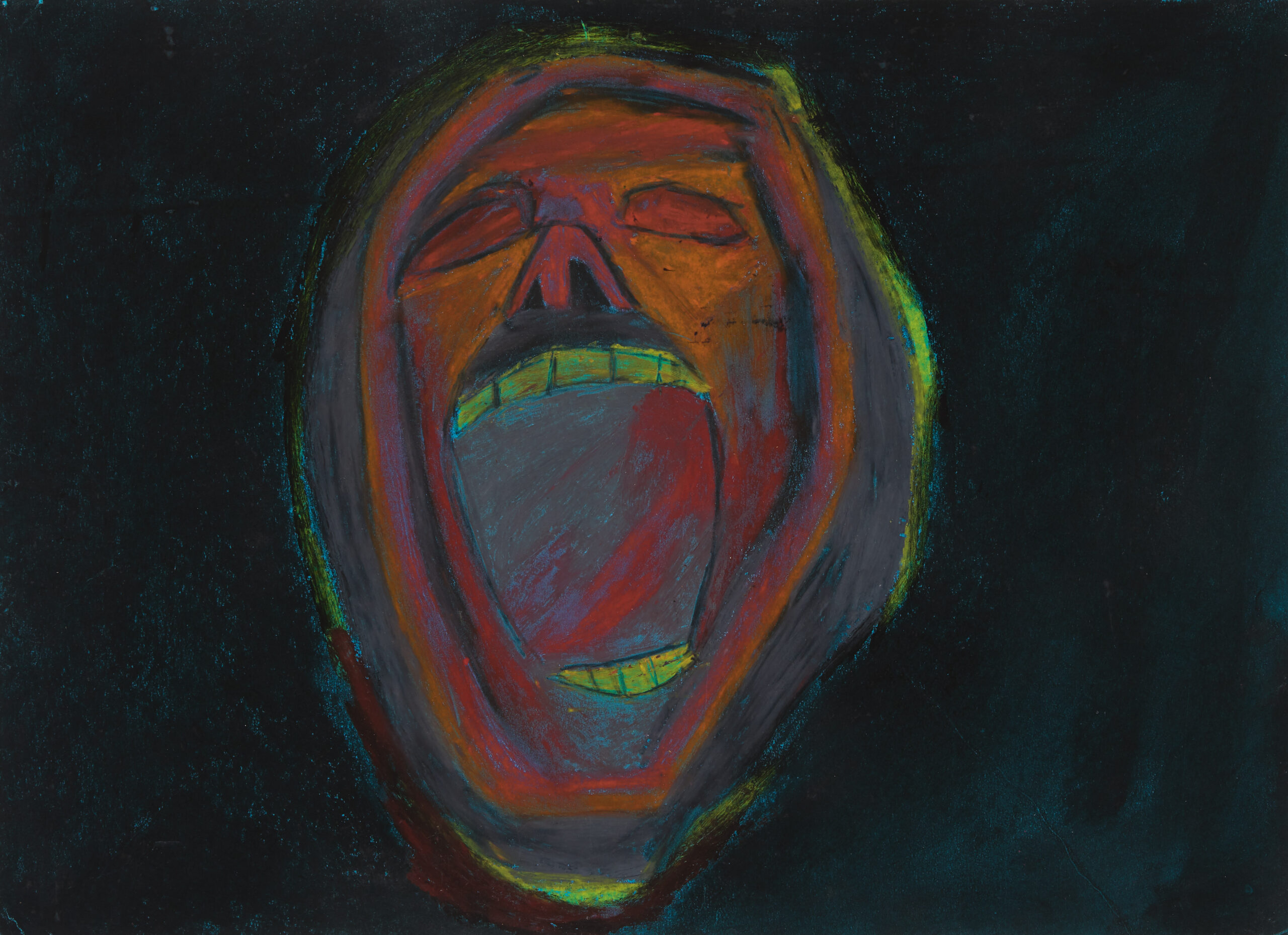
Yrsa Daley-Ward on swapping poetry for podcasting on her new show Descendants
Speaking to the Beyoncé-approved wordsmith about her new BBC project which explores how our personal histories are connected via slavery.
Sagal Mohammed
02 Jun 2021
It’s back to regular programming for English poet Yrsa Daley-Ward. After months of lockdown in her New York home, she’s running errands for her long-awaited return to London when we catch up to discuss a project that is unlike anything she’s done before. Over the years, Yrsa has successfully positioned herself as a digital-friendly modern bridge to the world of poetry for an audience often neglected by its elitism.
Her self-published 2014 book, Bone – a collection of coming-of-age poems unmasking both the cruelty and beauty of the world – broke barriers for its intimate simplicity and authentic display of emotions that made for perfect Instagram captions. In 2018 she released a memoir, The Terrible, which showed off her literary brilliance and the power of owning your truth, a theme that is once again overarching in her latest project with BBC Radio 4.
Now Yrsa is the narrator of Descendants, a new seven-part audio series exploring the legacy of slavery in modern Britain. Supported by University College London, the show gives Yrsa a platform to examine the close connections between everyday people from around the world, through their shared ancestral history coloured by imperialism and Britain’s colonial past. “With projects, I always want to know who they’re giving a voice to. What drew me to this series was that it gives space to ordinary people, all interwoven through slavery,” Yrsa tells gal-dem. What surprised her the most, and is without a doubt the most intriguing aspect of the series, is the eerily close ties between strangers, from Bristol to Barbados and Detroit. “I’m obsessed with storytelling and this series was like everyone’s life was in a bottle of pop and then the pop bottle opened up.”
“When people pass away, so much of that history passes away with them. That’s why I wanted to find out more about mine”
Yrsa Daley- Ward
Born and raised in Chorley, Lancashire to a Jamaican mother and a Nigerian father, the show forced her to think more about how this legacy is a key ingredient of her heritage too. “It is a huge part of my life but I had never really given it a great deal of thought,” she admits. “Working on the show was really thought-provoking for me, there were some real emotional moments in it and I walked away with so much more knowledge and understanding of it all.”
Writing has taken Yrsa, who is now based in Brooklyn, NY, to numerous parts of the world – including an unforgettable trip to Los Angeles following a call from Beyoncé, who asked the poet to write for her 2020 visual album, Black Is King. “The whole thing happened fairly quickly. I got the call and I was on a flight to LA the next day,” says Yrsa. Like Descendants, Black Is King connects African diaspora through a shared history whilst celebrating the essence of Blackness through a hybrid of various African cultures. “I remember brainstorming what the words were going to be on my way, trying to put a story to the beautiful visuals she already had. It was such a beautiful experience and I worked with wonderful people,” she adds. Although she admits the process didn’t resemble her usual methodology.
“It was definitely a different way of working for me. Letting her music, the colours, the rich imagery and everything else that was already there lead and finding a way to tie it together with words is not something I’d done before but [Beyoncé] was great.” The moment is one of her biggest accolades to date, though far from the last.
Just as that visual album traces our ancestry, so too are others on a similar journey of self-exploration. Modern technology makes it easier than ever to draw out the paths of our past, however dark they may be. For many Black Brits and other global descendants of the enslaved, the road to discovery is one that must be carried out with care and vigilance as it can so easily trigger past traumas. It is also one that requires a demand for accountability. Both are factored into Descendants.
“I grew up with my Jamaican grandparents but they weren’t really people that you could just ask, ‘oh so what happened back then?’ because it’s a sensitive subject,” says the poet. This is the case with many Black families whose ancestors were enslaved. Not only is it deeply painful to comprehend the actions of the oppressor but like Yrsa has experienced with her own family, there are often discrepancies within stories as a result of lost history.
“When you hear the intimate details of how people were trafficked from places like Sierra Leone and Nigeria and how these slave and plantation owners would treat them – there’s a quote from the show that explains how these people were physically ripped away from their families and their blood. We all know this but in this context, especially for the people that could trace their lineage, it was incredibly intense.”
“Is Britain moving and are things changing? Yes, but too slowly.”
Yrsa Daley-Ward
The emotional burden of unravelling the ugly truths behind imperialism and the trans-Atlantic slave trade is heavy. Yet still, it is important to keep the stories of our ancestors alive, especially when we experience the loss of those closest to us. Three weeks ago, Yrsa’s grandmother passed away which prompted her to investigate her own family tree. “When people pass away, so much of that history passes away with them. That’s why I wanted to find out more about mine. I’ve currently got someone looking into where my people were before they got to Jamaica, so I can’t wait to learn more.”
The rise of the Black Lives Matter movement last summer called for a reform in UK school curriculums, highlighting the importance of why pupils should be taught often hidden, ugly truths about colonialism and the British Empire, alongside more Black British history in the classroom, with organisations such as The Black Curriculum demanding changes. The protests also led to conversations around the removal of monuments and street names honouring slavery figureheads in both the UK and the US, particularly after the statue of a 17th Century slave trader Edward Colston was thrown into a harbour by activists in Bristol.
The first episode of Descendants delves deeper into this story, featuring conversations with Jen Reid, the woman whose statue appeared where Colston’s once stood. “The fact that the Colston statue could be toppled and has now been removed permanently is pretty significant and poignant,” says Yrsa. “Is Britain moving and are things changing? Yes, but too slowly. There are still so many systems that are set up to make it difficult to be a person of colour.” Earlier this year, a survey highlighted that 43% of Brits believe that systemic racism continues to plague society, despite the government’s claim that Britain is not institutionally racist, according to a recent race report.
She continues: “Growing up in Lancashire, I look back at it now and it was a pretty novel experience. We were definitely the only family who looked like us for a long time and I was the only Black girl in my school. In hindsight, I think that was a great factor in my decision to become a writer and a performer, to document feelings of being different and find universal things that link the world together. Looking at yourself from the outside in stokes a fire inside you as an artist.”
Moving from one career milestone to the next, Yrsa spent her time in lockdown writing her third book, The How, which she describes as a letter to the reader. The book challenges the idea of aspiring for perfection by constantly seeking out ways to achieve it. “There are so many ‘how-tos’ in the world; how to be better, look better, be healthier, how to be organised, the list goes on,” she says. “But it’s easy because the only answer is to look inside you and pay attention to your source of energy. That’s what knows you better than anything that any expert can tell you.”
Out 2 November, it acts as a guide to reconnecting with the self, something Yrsa often reminds her Instagram followers to do via a plethora of inspirational words. In one of her most recent posts, she emphasises the power of the force within us, writing: “There is a source running through you that is wiser than the head. Let go sometimes. Flow sometimes.” This a mantra Yrsa lives by, particularly when it comes to her own writing. Despite her effortless storytelling, she isn’t immune to creative blocks. But her approach to overcoming such obstacles speaks volumes about her view on life overall. “What I tell myself all the time and what I encourage others to do is to let the truest thing run through you. You’re just a vessel. As soon as you relax and realise that, it will come through you,” she says. “You don’t have to try to make something inside you beautiful. It’s already there.”
Wholehearted honesty and genuine trust in the process have played a monumental role in the success of Yrsa’s career thus far. It’s no coincidence that they’re also the two central factors at play as we travel through the lives of enslaved ancestors in Descendants.
Descendants is now available to listen to on BBC 4 on Fridays and via other BBC streaming services

